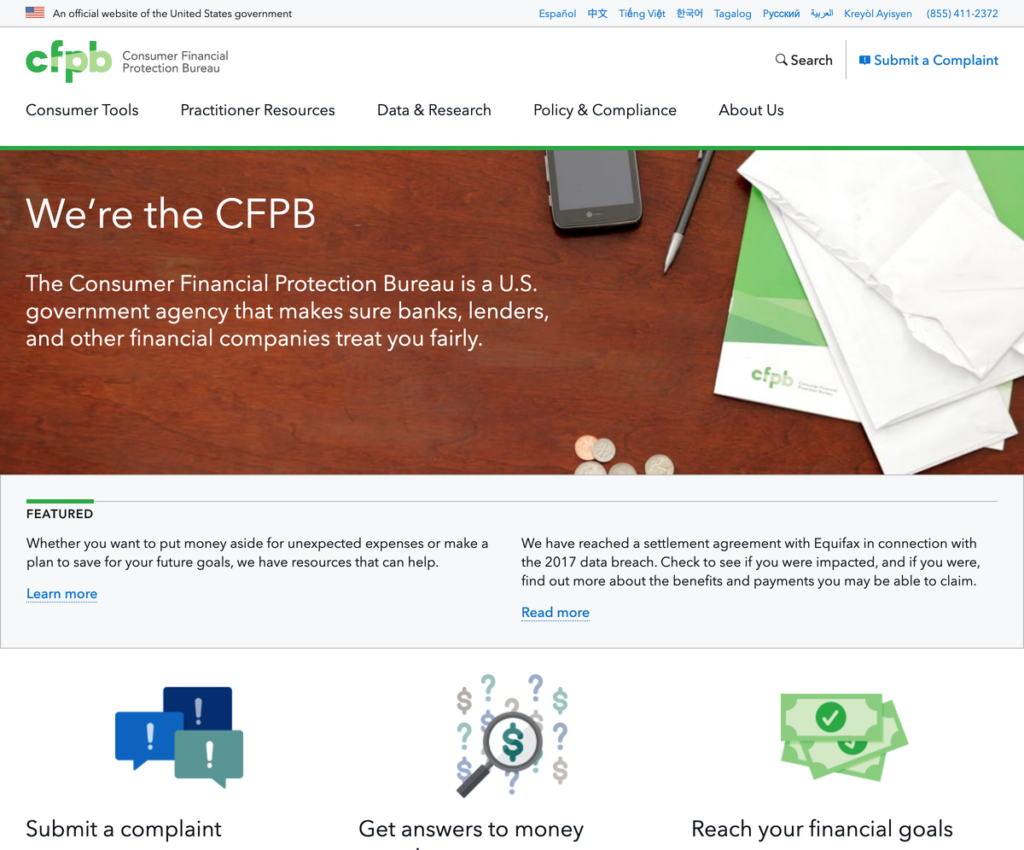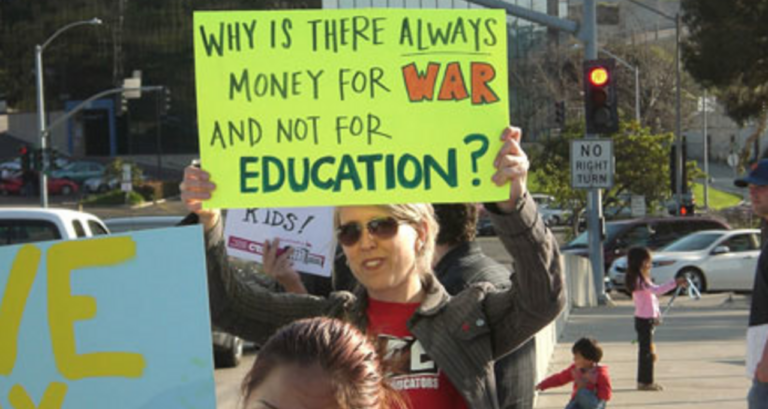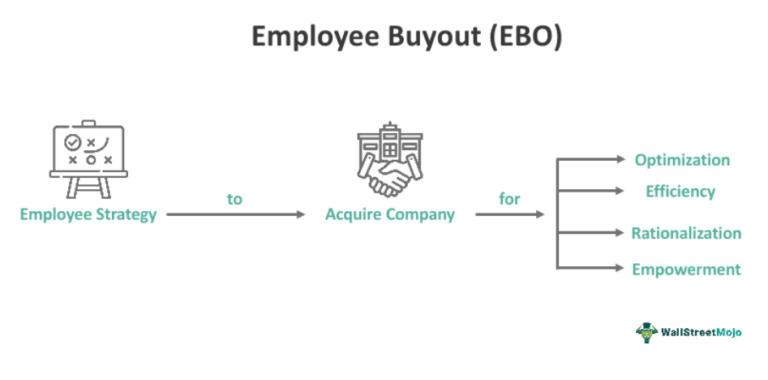
Audience
- Sentiment: Concerned
- Political Group: Conservative
- Age Group: 25-40
- Gender: Both
Overview
- CFPB laid off approximately 73 probationary employees, raising questions about agency leadership and consumer protections.
- The layoffs coincide with the nomination of Jonathan McKernan as the new CFPB director, signaling potential shifts in agency policy.
- These changes reflect a broader trend of workforce reductions within the federal government under the Trump administration, which may impact consumer advocacy.
Understanding the CFPB Layoffs and Leadership Changes: What’s Happening in Our Finance World?
In September 2023, the Consumer Financial Protection Bureau, commonly known as the CFPB, found itself in the center of significant controversy. The CFPB, an agency created to make sure that consumers are treated fairly in financial transactions, became the subject of headlines when approximately 73 probationary employees were laid off. This mass firing raised eyebrows and started conversations about the leadership of the agency, especially because of its timing. Let’s break down what’s happening here and why it matters to all of us.
The CFPB and Its Importance
First, let’s understand what the CFPB does. Established after the 2008 financial crisis, the CFPB’s main goal is to protect consumers from unfair, deceptive, or abusive practices in financial services. This includes anything from credit cards and mortgages to student loans. The agency’s aim is to ensure that every American has access to clear information and is treated fairly by lenders and financial institutions.
Imagine a time when someone is trying to get a loan for their first car or applying for a student loan. They rely on the CFPB to make sure that they are not being scammed or charged hidden fees. Thanks to the CFPB, consumers have someone watching over them and fighting for their rights. So, when changes happen at the CFPB, it’s worth paying attention.
What Happened with the Layoffs?
In a surprising turn of events, around 73 employees who were hired on a probationary basis were dismissed from their positions. Union representatives criticized these layoffs, claiming that they were illegal. Now, you might wonder, what does it mean to be a probationary employee? These are usually new hires who have not yet reached the end of their trial period. It’s a time when employers evaluate how well they fit with the team and the job. However, the laid-off workers felt they were targeted unfairly, especially those who had received praise in their performance reviews or had just been promoted.
To make matters worse, the way these terminations were communicated added insult to injury. Many employees received their layoff notifications through impersonal emails instead of face-to-face conversations. Imagine getting an email telling you that your job, which you worked hard for, is now gone. That sort of cold approach not only adds frustration but can also lead to feelings of betrayal among staff members. When people put in effort and dedication, they naturally expect at least a little respect in how they’re treated—especially during tough times.
Changes at the Top
These layoffs happened right around the time President Trump nominated Jonathan McKernan to be the new director of the CFPB. This shift in leadership is significant because the director’s vision can greatly influence the agency’s direction. McKernan is replacing Russell Vought, who was only in the role for a brief moment after the dismissal of Rohit Chopra. The turnover in leadership raises concerns about stability and consistency in protecting consumer rights.
McKernan comes to this job with a background in banking and financial policy. This experience is important because it indicates that he understands the world of finance. However, his appointment signifies the potential for changes in how the CFPB operates. There are voices in the financial industry who are hopeful for a shift away from the regulatory actions that the agency took in the past few years. These changes could mean less scrutiny on banks and lenders, which might not be in the best interest of consumers.
The Bigger Picture: Cuts to Federal Workforce
These layoffs and leadership changes are part of a broader strategy by the Trump administration to cut down the size of the federal workforce. This isn’t just happening at the CFPB; we’ve seen similar patterns at other federal agencies like USAID. The aim is to reduce government spending, but at what cost? When employees are let go, it means fewer people advocating for consumer rights, which can negatively impact everyday Americans who rely on these protections.
Let’s think about this: if a government agency is trimmed down and resources are spread thin, how can it effectively monitor companies that may take advantage of consumers? That’s like having a lifeguard at a pool but only being able to watch half the swimmers because they’ve been forced to take on extra responsibilities. The result can be chaos, with some swimmers (consumers) in distress while no one is watching over them right when they need help.
What Do the Changes Mean for Consumers?
Given that the CFPB was created to safeguard consumers, these layoffs and leadership shifts have caused plenty of worry. If the new administration seeks to roll back regulations that protect consumers, individuals may find themselves exposed to higher risks when dealing with financial products. For example, imagine applying for a credit card and suddenly facing unexpected fees or unfair interest rates because there’s less oversight on lenders. This is exactly the type of situation that puts consumers at a disadvantage.
Additionally, we should think about how these changes impact trust. When people start to feel like their government isn’t working for them, it can lead to skepticism about financial institutions. This skepticism can stop people from being active participants in financial systems—like borrowing money, saving, or investing. If consumers don’t advocate for their rights, they become vulnerable targets for unfair practices.
Moving Forward: What Can We Expect?
As Jonathan McKernan settles into his role as the new CFPB director, many eyes will be watching how he chooses to lead. Will he prioritize consumer protections, or will he lean towards deregulation in favor of financial institutions? It’s essential for all of us, especially young people entering the world of finance, to stay informed about these changes. Understanding the dynamics of these agencies is vital because they can significantly shape our experiences in banking, loans, and credit.
It’s also an excellent opportunity to think about how we can advocate for ourselves in the financial world. Being informed about our rights as consumers means we can stand up for ourselves when we think something isn’t fair. An empowered consumer is a powerful ally in the world of finance!
Your Turn: What Do You Think?
With all the changes happening at the CFPB, how do you feel about the future of consumer protections? Do you think the agency will continue to advocate for consumers, or do you worry it will shift focus to help financial institutions more? Share your thoughts in the comments!





